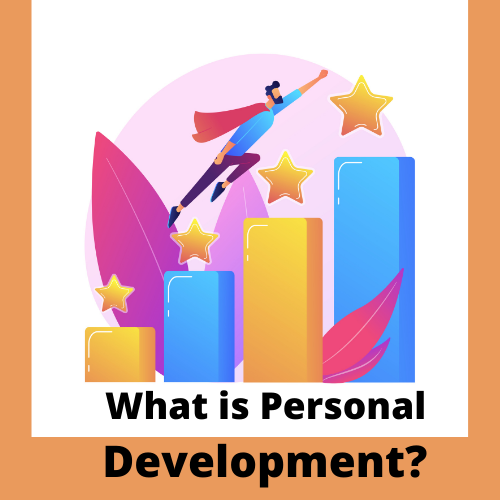Tech Tips
How To Build Self Confidence at Work

How To Build Self-Confidence at Work
Miriam Webster Dictionary defines self-confidence as confidence in oneself and one’s powers and abilities. Also, the Cambridge dictionary defines self-confidence as behaving calmly because you have no doubts about your ability or knowledge.
William Arruda, a personal branding expert and author of Ditch. DARE!! DO! says confidence is important because it is the most attractive personal branding attitude. “When some exude confidence, we want to work with them and they are more likely to lead and be followed by others.
How To Build Self-Confidence at Work
Self-confidence is the number one byproduct of the personal branding process because in branding you uncover what makes the person exceptional and use it to make career choices and deliver outstanding value.
Self-confidence is also a key leadership quality, Taylor adds If you are a decisive person with the credentials to back it up, you will be better positioned to advance in a company.

How To Build Self Confidence at Work – Photo Credit: Content.wisestep.com
How To Build Self-Confidence at Work
A self-confident person will be able to attract and retain a quality team because they will trust you and feel you have matters under control.
If you know your worth and value, believe in yourself, and speak with poise and conviction, you will naturally exude confidence.
However, uncertainty begets uncertainty. If you doubt yourself so will others. Deborah Brown Volkman, a career coach and president of ‘SurpassYourdream.com’ says that without self-confidence you won’t stand out. You won’t be assigned great projects and you are less likely to be recognized or get raises or bonuses, or promotions at your workplace.
How To Build Self-Confidence at Work
Self-confidence at work can benefit your employer as well, employees are the face of the company, when they are self-confident, they are better spokespeople for the company.
With a lean workforce, companies need everyone engaged and inspired. Lack of self-confidence impedes full engagement.
Taylor adds that employers benefit from confident workers because they are more productive, are good motivators, and make good role models.
Employees with self-confidence particularly in sales positions or customer service directly contribute to brand perception, beginning with the front desk officers, receptionists, or secretaries down to the administrative contact.
How To Build Self-Confidence at Work
Taylor says “Companies want to put their best foot forward or best representative in a large sense of projecting leadership and confidence and self-confident employees represent the parts to the whole. Following the definitions of self-confidence, so many people attribute self Efficacy to self-confidence but they have different perceptions.
In self-confidence, they believe in self-ability, although they have zero knowledge of what they need to deal with but are willing to try while self-efficacy believes in the self ability to do a specific task after having some knowledge about what they need to deal with and willing to try.
How To Build Self-Confidence at Work
Self-confidence can be a tough thing to build up and not everyone is born with an inbuilt sense of self-confidence, sometimes it can be hard to develop because of personal experiences that have caused you to lose confidence or because you suffer from low self-confidence.
A self-confident person does what they believe is right even if it’s unpopular( not recognized by people around them) is willing to take risks, admit their mistakes and learn from them, also be able to accept compliments, and is optimistic.
Low self-confidence can be natural. When you’re young or new to a job or lack adequate experience in a high-stakes situation. Research shows that many people especially women struggle with self-confidence early in their careers.
How To Build Self-Confidence at Work
Practically, a series of recent surveys indicate that women are less likely to promote themselves compared to men. This often puts women at a disadvantage as they are likely to be hired or offered competitive pay.
Low self-confidence can also come into play when you don’t have a flair for your job or the nature of the job, it can also spring from early childhood messages or your personality. Low self-confidence is not an inherent flaw and it doesn’t define you.
Can Self Confidence be Learned?
Self-confidence can be learned and practiced, it begins with becoming more self-aware, changing your mindset, and learning to bring your full self to work. Self-confidence is not about being brash, argumentative, aggressive, or apologetic, and it’s not about you changing into an entirely new person, instead, It’s about asserting yourself in a way that feels comfortable to you.
How To Build Self-Confidence at Work
If you have low self-confidence or yours has been threatened in some way, there are some things you can do to strengthen your confidence and boost it.
How to Boost Self Confidence
1). Stay Focused:
You need to stay focused on yourself. Taylor says You should do the best you can to stay on task and focused regardless of anything around you or the work environment, rumors mills, or non-productive maneuvers that are common as the office water cooler. Self-confidence emerges from time-honored, good work combined with a great attitude.
2). Surround Yourself With Positive People At Your WorkPlace:
Interestingly, the people you spend time with influence your thought and attitudes about yourself more than you think. If you feel bad about yourself after hanging out with a particular person, it may be time to say goodbye.
Pay no attention to how friends make you feel and also keep your perspective uplifted when you are around negative people, especially in your work environment.
Also, try as much as possible to limit contact with those colleagues at the workplace who bring you down when you build your self-confidence.
3). Meditate:
Take time and think about which people in your life make you feel great and create a goal to spend more time with supportive people, who motivate and uplift you.
4). Identify Your Strengths and Weakness:
Try as much as possible to identify your strengths and weakness and make use of them. Self-confidence is built in a clearer knowledge of your strengths and finding ways to integrate these strengths into what you do every day.
Take count of the things you do better than anyone and then always ask yourself how you can use those strengths to do your job if your current roles at your workplace do not give you opportunities to maximize your strengths think about other roles that will.
Self-weakness can also affect self-confidence, make a plan to reduce or eliminate them by not being obsessed over those things but Know that addressing your weaknesses and making a diligent effort to overcome them can help boost self-confidence.
5). Believe In Yourself:
Believe in yourself and closely monitor your successes so far.
6). Meditate More:
Meditate more and always tell yourself “ I can do this” and believe it. There are three affirmations you can say to yourself every night before going to bed as suggested by Arruda, telling yourself three positive things about yourself or three positive things that went well at your place of work.
7). Keep Track Of Your Daily Achievements:
Keeping track of your daily achievements or accomplishments is very important. Taylor says a to-do list is important in this way you cross tasks off your list and then you are more aware of your constant achievements. A kudos file is also necessary to keep a record of your successes.
This is where you can store congratulatory emails, milestones reached, kudos from bosses or colleagues notes to yourself on challenges overcome, thank you letters, recognition and praise letters from inside and outside the company, and also refer to the file regularly for a Check of your talents and a personal pat on the back.
8). Know That Your Confidence May Be Threatened:
Know That Your Confidence May Be Threatened and seek encouragement from others. Accept that self-confidence can be threatened, Levit says “ If you are on the receiving end of a mean comment that shakes your self-confidence, give yourself 24-48 hours to recover before responding or making any important decisions.”
Once your self-confidence is threatened ask people you respect what they think are your true greatest strengths and then find ways to use those strengths. It can help to improve your self-confidence.
9). Get Feedbacks From Friends:
Get Feedbacks From Friends, colleagues, or even your supervisor about how you are doing and ask them to identify your strengths and places where they would like to see you improve more on, sometimes other people see more talent in us than we recognize in ourselves. With this, you can improve your self-confidence.
10). Challenge Yourself:
Challenge Yourself and be a role model with a positive attitude accomplishing things that you didn’t think possible can be a great way to boost self-confidence.
Find projects and assignments that allow you to use your strengths and take on projects that stretch you and try to refrain from judging your performance too early.
In the process, anytime you try something new even if you’re unsure and afraid, stop comparing your performance to other people’s performance, as it will help you feel more confident.
11). Develop Positive Attitude:
To develop a positive attitude doesn’t mean to be happy. It can also mean being resilient and also focus on how to provide solutions rather than spending a lot of time discussing the problem, this attitude helps one to feel more confident.
Most workers are drawn to those with an upbeat attitude especially when challenges emerge.
12). Self Reaction:
Self-reaction to bosses’ and colleagues’ actions should be considered. One of the most effective ways to gain self-confidence is elevating your emotional radar in the workplace.
Always read through the action of your boss and co-workers when they affect your self-confidence and understand that they may be acting out in ways that we are all capable of, like children or even toddlers when under stress or frustration.
Once you use this levity lens and see human beings protecting their ego or wanting praise like children, you should respond more appropriately than suffering in silence or blaming yourself.
We hope that after reading through the article, you can able to build and boost your self-confidence in the workplace.
13). Monitor Your Body Language:
Body language is crucial to self-confidence. Your facial expression, how you sit, how you walk, how you talk, and your body movement, especially when interacting with someone, all depict how confident you are.
For an effective self-confident attitude in your work environment, ensure your monitor your body language.
14). Manage Your Comfort Zone:
Management of your comfort zone can differ from individual. For example, Most People avoid feelings of anxiety, stress, and pain by staying in their comfort zone and the same does not apply to Others. Managing your comfort zone helps in increasing your confidence.
How do you do this?
- To manage your comfort zone, you need to challenge yourself and push past the mental, social and overall barriers.
- Widening your comfort zone is one way to get outside of it. Make it a goal to avoid avoiding discomfort.
- Make it a goal to avoid running away from discomfort.
- See discomfort as a friend, because it indicates you’re stepping outside of your comfort zone
- Believe that change is possible and that you can effect change.
15). Accept That Everyone Does Mistakes:
Accepting that everyone is not perfect helps you build self confidence at work. Doing so creates that mindset of going at your mistake over again to ensure that you get it right.
Don’t forget to comment, share, and like.















Pingback: How to Build Self Confidence - ArenaHub
Pingback: How to Build Self Confidence as a Student - ArenaHub
Pingback: Personal Development: Definition, Importance and How To Improve - ArenaHub
Pingback: How To Build Self Confidence As Crypto/Forex Trader - ArenaHub
Pingback: What Is Conflict Management? » ArenaHub